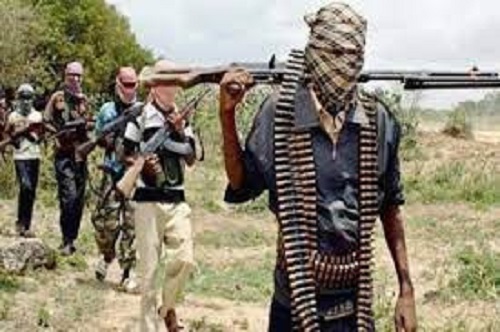Ever since President Bola Ahmed Tinubu took office, Nigeria has faced one national security disaster after another, with the bloodshed in the North continuing unabated. The country is now on high alert as the danger moves ever closer to Abuja, the seat of power. However, the government’s approach to these security threats has been nothing more than a short-term, reactive strategy that exacerbates the situation. This article calls for an honest conversation about Nigeria’s security challenges, particularly regarding banditry.
It has become clear through President Tinubu’s words, actions, and body language that his primary interest lies in gaining and maintaining power while controlling the economy. He has shamelessly placed members of his tribe in top positions within ministries, departments, and agencies (MDAs) that control and allocate funds. National security issues, including banditry, are seen as nothing more than distractions from his grand agenda.
The lack of transparency and trustworthiness of the current government has led many to believe that the recent surge in kidnappings in Abuja and the North is artificially created to provide justification for Tinubu’s hidden agenda: relocating critical MDAs and ultimately the federal capital to his hometown of Lagos. The deteriorating security situation in Abuja and the surrounding states is being used as an excuse for this move, but the Presidency has failed to address the real concerns of the Nigerian people regarding these speculations.
During President Goodluck Jonathan’s tenure, Abuja faced even worse security threats, but he did not abandon the seat of power. It is therefore essential that the current presidency comes clean and provides the true reasons behind the proposed relocation to Lagos instead of offering sneaky and defeatist explanations.
The new military leadership has failed to present any concrete plans for addressing Nigeria’s multiple security challenges, which have persisted for the past eight years. It is evident that the wars against banditry, Boko Haram, and Niger Delta militancy have become lucrative sources of income for the military, allowing these conflicts to continue. President Tinubu is unlikely to change this culture, as it serves his interests.
While the military plays a crucial role, a military solution alone is insufficient to tackle banditry in Nigeria. The increasing militarization of the conflict has proven to be disastrous. Banditry is primarily a social problem that has festered and transformed into a profit-driven criminal enterprise. The drivers behind these conflicts are rooted in local issues, and therefore, local solutions must be sought. The top-down military approach from Abuja, which disregards local stakeholders, has proven ineffective over the past eight years and must be revamped to bring an end to this conflict.
The recent escalation of terrorist attacks, including the abduction of female students, forced marriages, use of explosives, and attacks on security installations, are characteristic of Boko Haram rather than bandits. Concerns have long been raised about the infiltration of Boko Haram and its affiliates into the Northwest and Northcentral regions and their unholy alliance with bandits.
Overall, the recent violence in Abuja and the North is far more complex than meets the eye. Reports indicate that gunmen in military uniforms have been killing Fulani herders and leaving their bodies in areas predominantly inhabited by Christians, with the aim of inciting reprisals. Clearly, these actions cannot be attributed to the professional military.
To achieve lasting peace, it is essential to demilitarize the conflict, involve all local stakeholders in aggressive nationwide reconciliation efforts, and undertake the rehabilitation and disarmament of all warring parties. Identifying and prosecuting the financiers, collaborators, supporters, and leaders of these terrorists is crucial. Additionally, the Nigerian police force, as the primary law enforcement agency, must fulfill its duty of internal policing instead of relying solely on the military.
Dialogue is a legitimate tool in conflict resolution, although previous efforts have not been genuine. To ensure the success of true dialogue, the federal government must take full ownership, engage experts rather than politicians, conduct comprehensive stakeholder mapping, and declare a ceasefire to enable the genuine participation of all parties.
Concerns have been raised about the lack of coordination between various federal government security agencies currently engaged in dialogues with bandit groups, the misrepresentation of banditry as solely an ethnic Fulani problem, exclusion of important local stakeholders, and allegations of bribery during these dialogues. These mistakes are detrimental and will lead to failure if not addressed appropriately.
It is crucial for Northern Nigeria to awaken to the systematic agenda aimed at dividing the region along ethnic, religious, and economic lines. This agenda poses an existential threat to the region’s security, economy, and social fabric, and it will take generations to heal the rift that is being created.
To counter this agenda, steps must include decimating Boko Haram, addressing banditry, reducing poverty and unemployment, improving politics, and resolving strained relationships with neighboring countries. Moreover, Northern leaders, including traditional rulers and Muslim clerics, must actively advocate for their people and speak out against injustices. Corruption remains the biggest risk to Nigeria’s national security, and addressing this issue is crucial for peace and development. Lastly, military force alone cannot resolve the underlying grievances and drivers of insecurity; instead, the government must invest in addressing these root causes rather than investing in expensive military hardware.



